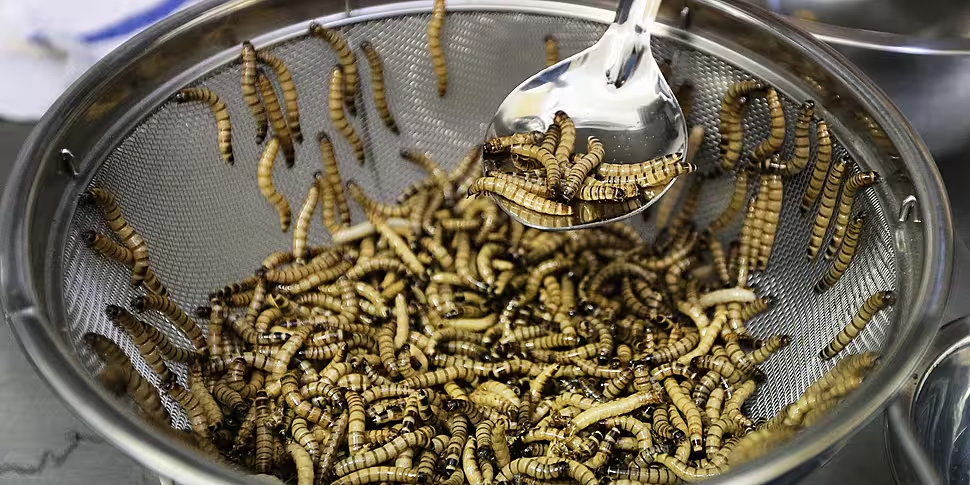The European Food Safety Agency (EFSA) has given the green light to snacking on worms.
These mealworms could be used as a protein-rich snack, or an ingredient for other foods.
Environmentalist Dr Cara Augustenborg told The Hard Shoulder this is the way our diets are moving.
"They're the kind of worms you would feed if you have a turtle or a protein-eating fish.
"They're very small worms, very crunchy and can be served roasted or mixed into a smoothie."
She said the EU is also looking at other edible insects, such as crickets.
"We know that the plant-based and alternative meats industry has grown enormously over the last decade, and edible insects are part of that because they're very protein and vitamin-rich - and they can serve as an alternative source of protein."
The @EFSA_EU says #InsectFood is safe to eat, but how does it taste? I find out for @NewstalkFM @TheHardShoulder with @kierancuddihy. Tune in from 4pm on https://t.co/sq6NqnCYXL to find out why we need to work up an appetite for crickets and worms! 🐛 🪱 pic.twitter.com/Lvowq7bYkI
— Dr. Cara Augustenborg (@CAugustenborg) January 14, 2021
Dr Augustenborg said these are sold in specialty shops or online.
"I have done some baking with cricket flour in the past, which is actually quite tasty.
"Or you can buy these unblended... freeze-dried insects - and you can roast them and mix them into salads, or season them with salt and vinegar and use them as a snack."
She said this is not as unusual as people think.
"A third of the world eats insects on a daily basis, so this is not new to other parts of the world - though it is obviously something we don't do in Europe".
She said this is down to the type of insects we have here.
"We don't tend to have a lot of large insects like locusts or grasshoppers.
"So in other parts of South-East Asia and Africa, they have had a tradition of having these large insects that makes sense to farm or to harvest".
'The phycological fear'
She said this can be particularly logical for insects that we have in excess.
"Locusts are taking over large parts of Africa right now... so we could certainly be looking at those kind of insects that we consider pests.
"And actually by eating them, we kind of create a market for them".
"There's really no drawback once you get over the phycological fear".
She added: "As our population grows - we'll have nine billion people in the world by 2050 - and we already have seven billion, with 100 billion people now currently in hunger.
"The United Nations has really been promoting that we move toward a more insect-based diet".
Ermolaos Ververis, a chemist and food scientist at the EFSA, has said their work will continue.
"Insects are complex organisms, which makes characterising the composition of insect-derived food products a challenge.
"Understanding their microbiology is paramount, considering also that the entire insect is consumed."
He added: "Formulations from insects may be high in protein, although the true protein levels can be overestimated when the substance chitin, a major component of insects' exoskeleton, is present.
"Critically, many food allergies are linked to proteins so we assess whether the consumption of insects could trigger any allergic reactions.
"These can be caused by an individual's sensitivity to insect proteins, cross-reactivity with other allergens or residual allergens from insect feed, such as gluten.
"It's challenging work because the quality and availability of data varies, and there is a lot of diversity among insect species."









